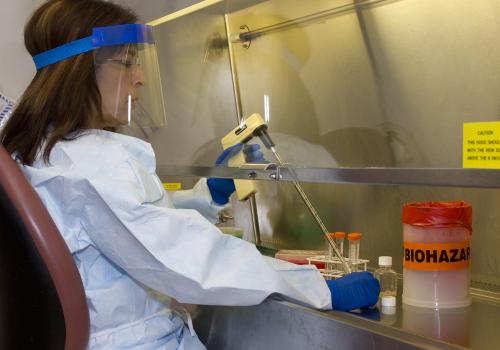About the Infectious Diseases Unit
The Infectious Diseases Unit provides unique expertise and a collaborative setting for the study of infectious and immunologic diseases affecting humans, at the whole animal, organ, cellular, and molecular levels. The research projects in this unit include pathogenesis of viral infections (including SIV/ HIV, ZIKV, CHIKV, herpes, influenza), opportunistic infections, mucosal transmission, antiviral immunity, viral diagnostics, epidemiology, prophylactics/vaccines, and antiviral therapies. Many of the experiments are preclinical studies directly related to prophylactic and therapeutic interventions that guide clinical trials.

• SIV studies in macaques cover all ages, ranging from infancy to adulthood, and continue to provide better insight into how the virus transmits and causes disease, including immunodeficiency and neuro-AIDS. The model tests immune and drug-based strategies to prevent or treat infection or the resulting diseases, and provides proof-of-concept for human clinical trials. The relevance of this animal model is clear, as many of the current antiretroviral drug regimens used to prevent or treat HIV infection in humans were originally tested in nonhuman primate models. Ongoing efforts include studies on the mechanisms behind the incomplete repair of the gut in SIV-infected animals on antiretroviral drug therapy, and the use of mesenchymal stem/stromal cell (MSC) therapy to promote better recovery of the gut mucosa.
For information about the Infectious Disease Unit, contact Koen VanRompay, DVM, PhD, Unit Leader.
Recent Research Accomplishments
• This unit has a long history of using rhesus cytomegalovirus (Rh-CMV)-vectored vaccines against chronic diseases such as SIV/HIV.
• Recent and ongoing studies include other emerging diseases, especially arboviruses such as Zika virus, Dengue virus, and Chikungunya virus.
• In many of these studies, the Infectious Diseases Unit investigators collaborate closely with the other Research Units and Cores of the CNPRC, and external investigators at UC-Davis, national and international institutions.
